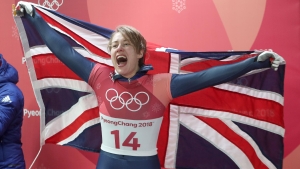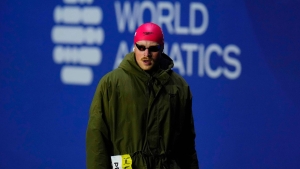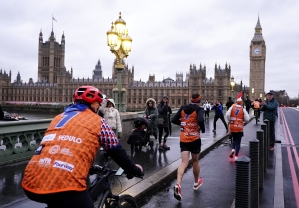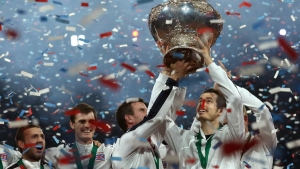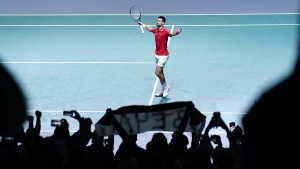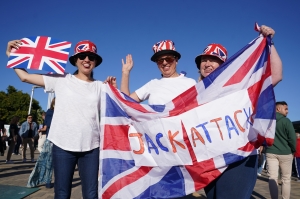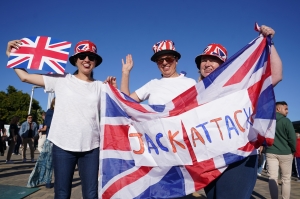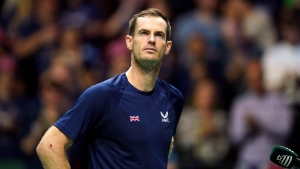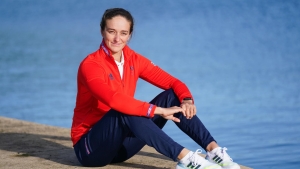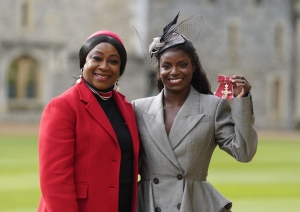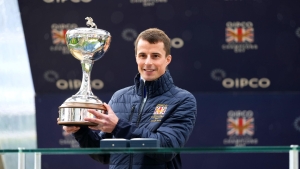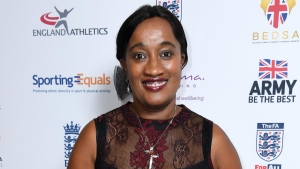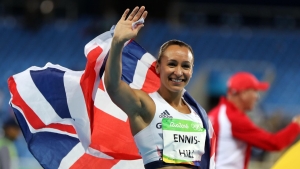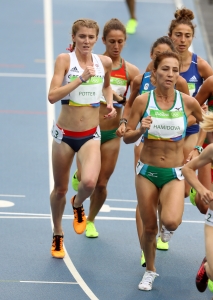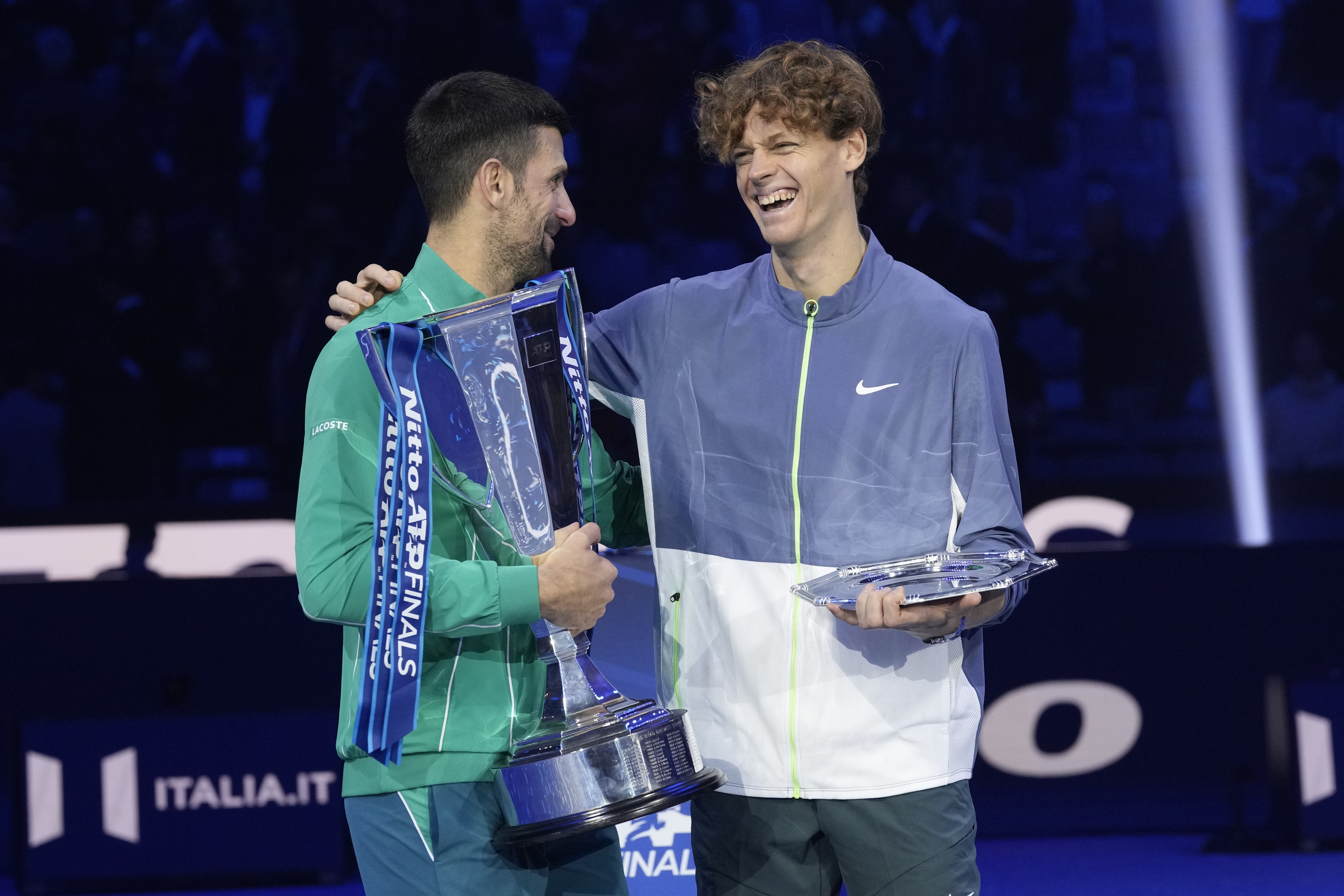
The Lawn Tennis Association has called on British fans to show respect to opposing players after Novak Djokovic’s spat with supporters at the Davis Cup in Malaga.
Djokovic defeated Cameron Norrie 6-4 6-4 to secure a 2-0 victory for Serbia over Great Britain in the quarter-finals on Thursday evening but was very unhappy when a section of the 5,000-strong British support tried to drown out his post-match interview with drumming.
Djokovic, who had earlier ironically blown kisses to a vocal British fan at the end of the first set, told the supporters: “Learn how to respect players, learn how to behave yourself.” He then added: “No, you shut up, you be quiet,” as the row continued.
British captain Leon Smith played down the incident, arguing that noisy, partisan atmospheres are central to the Davis Cup.
An LTA spokesperson said: “Passion is a unique component of the Davis Cup and it is a competition where emotions run high. We are lucky to have strong travelling support and would always encourage GB supporters to behave with respect for our opposition.”
Rather awkwardly for the governing body, it does provide help to some supporter groups, including the one in question, the Stirling University Barmy Army, to travel to ties in order to create a good atmosphere.
The row overshadowed what was a disappointing end to an encouraging season in the competition for Smith’s men.
Norrie played well and kept the scoreline relatively close against the world number one without ever remotely threatening an upset but the damage was done when Jack Draper lost out 7-6 (2) 7-6 (6) to Miomir Kecmanovic in the opening rubber.
It was only the 21-year-old’s second Davis Cup match and one he will unquestionably learn from, with Draper set to be central to Britain’s hopes over the next decade and more.
He has recovered well from an injury-hit first two-thirds of the season, reaching the fourth round of the US Open and his first ATP Tour final in Sofia earlier this month to pull his ranking back up to 60.
“I’m really proud of the improvements I made this year,” said Draper. “I think, though I lost the match, I’m trying to play in the right way. I didn’t serve great, but I’m trying to look to come forward a lot more.
“I think it’s only exciting with me. I’ve got so much to improve on. That’s an amazing thing. Just reset and look for improvements.”
Draper also backed Smith to continue his long tenure in the captain’s role. It is now eight years since the Scot guided Britain to a stunning Davis Cup title, and next year will be his 14th at the helm.
“He creates an amazing environment,” said Draper. “We all want to play for him, all want to work hard. He only is positive around us in my opinion.
“It’s up to him if he wants to step down or not, but I’d be very happy if he stayed on and we can keep playing, because he’s a great captain, a good guy. He gives us a lot.”
Without a peak Andy Murray, Smith has had more difficult selection decisions to make, and last year’s group-stage exit ended in recriminations when Dan Evans claimed he should have been picked for doubles.
He got his wish this year, which paid off when he played the key role in helping Britain reach the last eight only for a calf injury to rule him out of this week’s event.
Had Evans been available rather than cheering from the stands, things might have turned out differently, and, with Murray also sidelined, Smith was left with a team that picked itself.
He will hope that Norrie rediscovers his best form next season having now lost three Davis Cup rubbers in a row, and there were some encouraging signs against Djokovic despite the final result.
Britain will find out on Sunday if they have been awarded a wild card for September’s group stage or must play a qualifier in February, while Djokovic and Serbia have their eyes on the big prize and a crunch semi-final against Italy on Saturday.
The match will see Djokovic clash with Jannik Sinner for the third time in a week and a half in the biggest Davis Cup singles match for many years.
Sinner handed Djokovic his first defeat since the Wimbledon final in the group stage of the ATP Finals only for the world number one to take revenge in the final.
Djokovic, who is unbeaten in Davis Cup singles rubbers since 2011, said: “We’re developing a nice rivalry lately. I have tons of respect for him.
“He’s been playing arguably the tennis of his life. I saw a little bit of the singles and doubles that he won (against the Netherlands on Thursday). Amazing. He really played on a high level. I could see that he was very pumped to play for his nation.
“I’m not playing bad myself. So it’s going to be, I think, a great match.”























